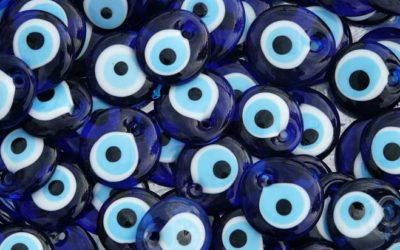Convergence insufficiency
What does this mean for your vision?
Convergence insufficiency, or convergence dysfunction, is a common binocular vision disorder in which the eyes do not work at near easily. The eyes have a strong tendency to drift outward when reading or doing close work.
When the eyes drift out, you may experience ailments such as double vision. You can pass your eye test with 20/20 vision but still have trouble seeing properly with close-up tasks. So, it’s important to tell us if something isn’t quite right with your vision.

What causes convergence insufficiency?
The exact cause of convergence insufficiency is currently unknown.
Most cases of convergence dysfunction occur with children and young adults, particularly during prolonged periods of close work.
Symptoms of convergence insufficiency
Typically, a person who has convergence insufficiency will notice difficulty while performing close work such as reading, computer work, and using handheld devices.
Symptoms of convergence dysfunction include:
- double vision
- blurred vision
- eyestrain
- headaches
- inability to concentrate
- short attention span
- squinting, rubbing, closing or covering an eye
- sleepiness during the activity
- words appear to move, jump, swim or float
- problems with motion sickness
Symptoms can be worsened by illness, lack of sleep, anxiety, and/or prolonged close work.
What can you do to correct it?
As more than 50% of the brain is dedicated to visual function, it makes sense to get treatment for your eyes if you are suffering from convergence insufficiency.
Double vision treatment can be broken up into two methods: visual therapy and supportive eyewear.
Visual therapy and eye exercises
Vision therapy uses a variety of exercises to retrain the connection between the eyes and the brain. This type of therapy focuses on training the eyes to converge and to switch between convergence and divergence.
A clinical trial funded by the National Eye Institute has proven that the best treatment for convergence dysfunction is supervised vision therapy in a clinical office with home reinforcement — 15 minutes of prescribed vision exercises done in the home five days per week.
The scientific study revealed that children responded quickly to this treatment protocol. In fact, 75% achieved either full correction of their vision or exhibited marked improvements within 12 weeks.
Prism eyeglasses
Prismatic (prism) eyeglasses can be prescribed to decrease some of the symptoms.
Although prism eyeglasses can relieve symptoms, they are not a cure. The patient typically remains dependent on the prism lenses. .
Scientific research and results prove that the most effective and lasting treatment of convergence dysfunction should be active vision therapy.
Eye muscle surgery is another option, although it should only be explored when all other efforts have failed as it can be risky.
Talk to us!
A basic eye exam or screening with the 20/20 eye chart is not adequate for the detection of convergence dysfunction, as well as many other visual conditions. As we mentioned above, a person can pass the 20/20 exam and still have convergence dysfunction.
A comprehensive vision evaluation by an eye doctor who tests binocular vision and who can provide in-office vision therapy is recommended for all individuals who do reading and desk work — particularly students of any age.
Unsure if you are suffering from convergence dysfunction? Want to book an eye exam and discuss possible causes and solutions for your double or blurred vision? Please feel to email Jenny at jenny@gp-optom.co.nz to set an appointment.
Featured Posts
Eye Myths, Superstitions and Cultural Beliefs
Cultural myths and superstitions about the eyes can influence the way we approach eye health and eye care. Read about some of these interesting beliefs here.
The History of Glasses
From “reading stones” to cutting edge technology – how history has shaped your spectacles. It’s hard to imagine a world without certain things. The internet, cellphones, cars … but imagine how differently we would experience all of these things if the humble...
Address
Cnr Great South Road & Rockfield Road, Greenlane 1051
Phone
09 525 1516
Hours
Mon to Fri: 9am – 5pm
Sat to Sun: Closed
Holidays: Closed



